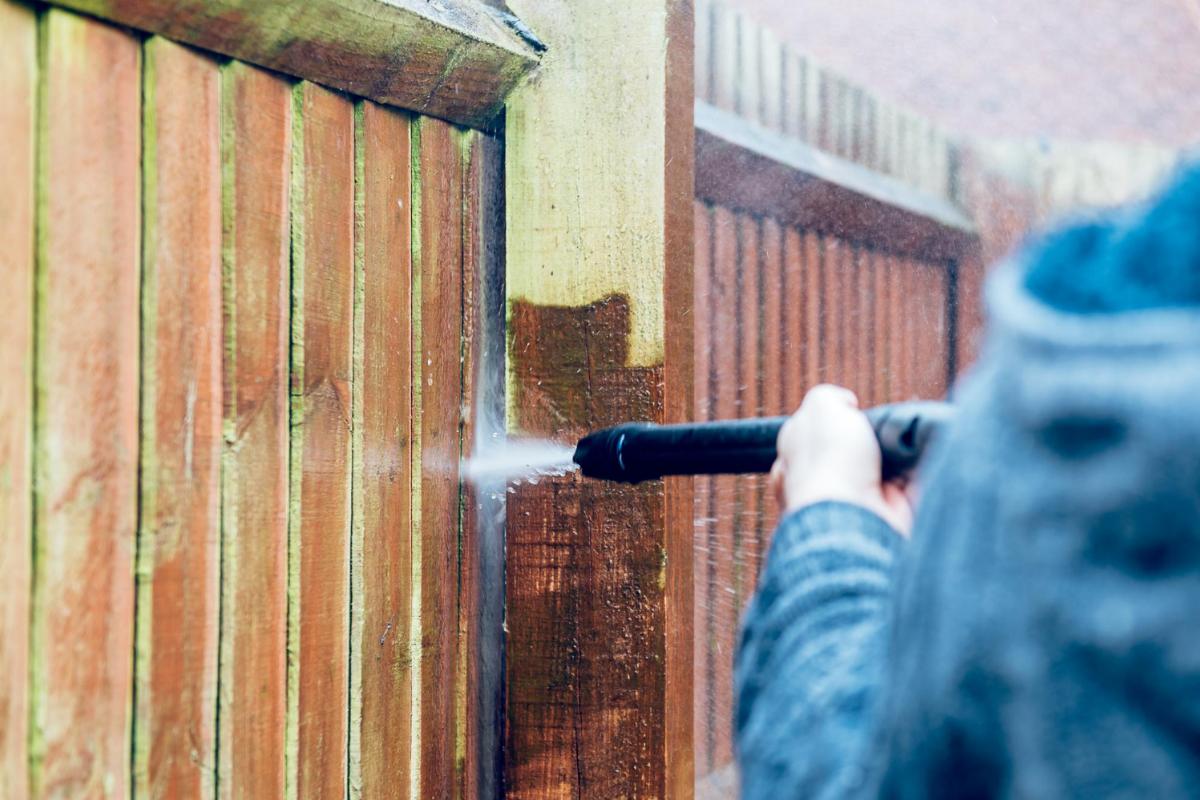
Nobody likes a dirty fence. However, it can be frustrating to see grime, dirt, and mildew build up over time on your fence. Many people worry about cleaning their fences without owning a pressure washer. Our experts on fence repair in Orlando, FL, offer the following steps to clean your fence and how to do it right.
There are various things you will need to clean your fence, including:
These are the items you need to clean your fence if you aren't using a pressure washer. Depending on the fence type you need to clean, you may also find that a fine bristle toothbrush is helpful. Next, we will discuss how to clean your wood fence without using a pressure washer.
There are various products on the market to clean mildew and mold off of your fence. These products should be much cheaper than purchasing a pressure washer and can do a great job of getting mold and mildew off of your fence. These products usually come in spray bottles. Remember to read all of the instructions on the bottle before you start cleaning. The manufacturer's instructions will guide you on using the cleaning solution properly.
Even when the product you purchased says you don't have to scrub your fence, using a little elbow grease will help you get any mildew, dirt, or grime off of the fence surface more effectively. Once you spray down your fence and let the chemicals sit for a minute, use a scrubber or washcloth to remove the extra dirt off of the surface. Suppose you do not feel comfortable using chemicals on your fence because you are environmentally conscious. There are also some at-home remedies to creating your own cleaning solutions.
For example, baking soda and vinegar provide a fierce cleaning combination that is not as corrosive as other cleaning options. One of the most significant benefits of baking soda and vinegar is that the products are reasonably inexpensive, and you likely have them in your house already. In addition, baking soda helps erase your offensive dirt, while vinegar works to remove mildew and mold. If you only have a slight amount of mildew on your fence, you can dilute your vinegar solution with water.
Next, spray on the vinegar and allow it to sit on the fence surface for a few minutes, and then use your fine bristle toothbrush to scrub the area and see if the mildew is removed. If the mildew does not come off completely, continue applying vinegar and baking soda while cleaning away the stains. The drawback of baking soda and vinegar is that you will likely have to scrub harder and repeat the process several times to remove the stain effectively.
Chain link fences require different cleaning methods than wood because rust is sometimes a problem. To maintain metal fencing, you should apply rust protection every year. If you don't use this annually, your fence can easily rust. This is a critical maintenance tip because rust can create holes in your fence without rust protection. Holes from rust will cause weakness in the integrity of your fence.When spraying on your rust-resistant coating, it is crucial to focus on the bottom of your fence, where moisture usually gathers due to dirt and grass.
Chain link fences are easy to clean with dish soap and water. These fences are not subject to mildew, but you're sure to find debris and dirt on the fence surface. Use a high-powered hose to spray off your fence to remove dirt and debris. If you find other stains like bird droppings, you may have to use a scrub brush and soapy water to remove the mess.
You can clean small amounts of grime and dirt off your vinyl fence by spraying it with a hose. Because of the smooth surface of vinyl fencing, water and a hose may be the only things you need for fence cleaning. If you find minor stains, you can use a magic eraser that has been wet down and firmly squeezed. For stains that you cannot remove with water or a magic eraser, you can use a bleach solution to scrub away dirt and grime. Use five parts water to every one part of bleach, and always use gloves to protect your hands while you are scrubbing.
Wrought iron fence cleaning is very similar to cleaning a chain-link fence. However, it is essential to remember that wrought iron fences are subject to rust. While there is not much you can do about humidity and rain causing your wrought iron fence to rust more quickly, there are things you can do to protect your fence. It is vital to keep prickly bushes, weeds, and vines away from your wrought iron fence because they can cause scratches, which encourage rusting.
You can apply water repellent or car wax to your fence to protect it from rust. You should use warm soapy water to clean your wrought iron fence. If you notice early signs of rust, scrub them away with a small cleaning brush. After cleaning the fence and removing the small rust spots, rinse it and allow it to dry. If you cannot remove rust with simple scrubbing, you can use a fine wire brush and sandpaper to scrub it off. Afterward, apply rust protection spray to your fence or paint it to ensure it remains protected.